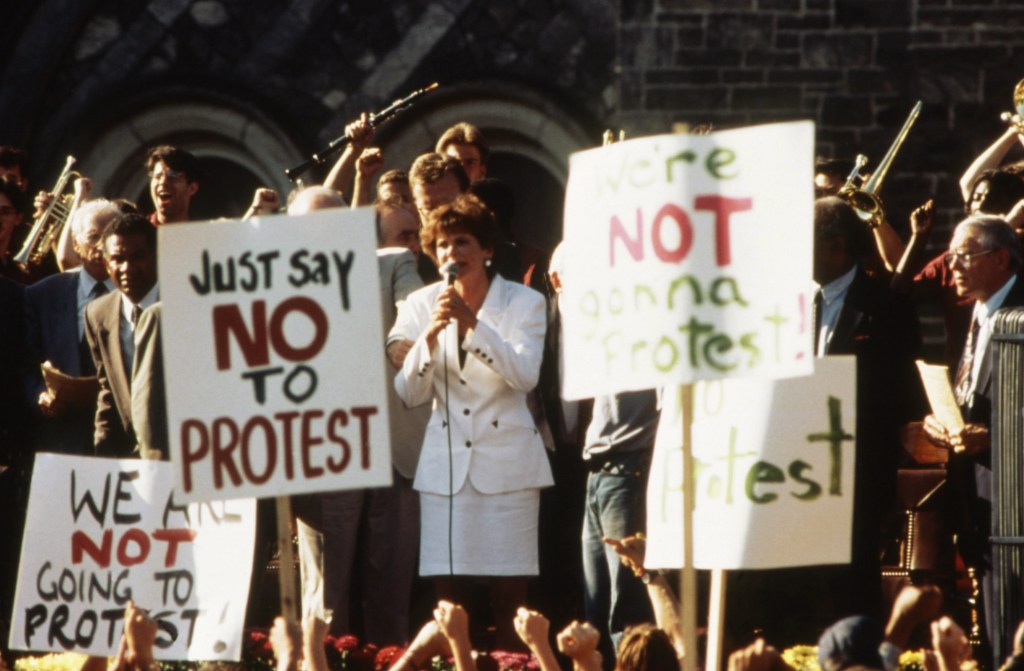Where is the line between truth and sensationalism? The question has dogged the true-crime genre since its inception, and it’s a difficult one to unpack. When does an investigation—and its presentation—become exploitative rather than honest? We’re not any closer to a clear answer, but the scrutiny that the genre demands has, by proxy, affected a sea change in how we consume and think about stories told by and about women.
Casting JonBenet, Alias Grace, and I, Tonya are all based on true stories. Casting JonBenet is loosely centered on the murder of six-year-old child beauty queen JonBenét Ramsey; Alias Grace is a fictionalized account of the life of Grace Marks, who was convicted and pardoned for murdering her employer and his housekeeper; and I, Tonya is a biopic of Tonya Harding, whose fame as a figure skater was eclipsed by her alleged involvement in an attack on fellow skater Nancy Kerrigan. While the three navigate the thornier parts of true crime differently, they all examine the agency—or lack thereof—of their subjects, and how popular fascination and bias have played into the exploitation of these stories.
Videos by VICE
As a docufilm and a biopic, respectively, Casting JonBenet and I, Tonya are most explicit about the way people engage with true crime. I, Tonya, which features direct-to-camera monologues from most of the characters, certainly doesn’t bother with subtlety; as Harding (played by Margot Robbie) speaks of her life following her ban from skating—which included a brief boxing career—she says, “I was loved for a minute. Then I was hated. Then I was just a punchline. It was like being abused all over again, only this time it was by you.” Setting aside the question of whether the film accomplishes this to satisfaction, it forces the viewer to confront how these narratives demand a villain where there often isn’t one, effectively robbing those placed in them of having control over their own lives.
Kitty Green’s Casting JonBenet approaches the subject from the opposite side of the spectrum, but ultimately gets at the same point. The docufilm is made up of interviews with actors from Colorado, where JonBenét Ramsey lived and died, who are auditioning for a movie about her murder. As the film progresses, it becomes clearer that a large part of why we are fascinated by true crime is because of the way we project our own experiences upon it. The most unsettling part of Casting JonBenet is the way that Ramsey is essentially absent from it apart from others’ speculation. The film opens and ends with shots of the young girls auditioning to play her, but they aren’t interviewed. Ramsey never gets the chance to speak, but her story remains on horribly public display.
Alias Grace, as an adaptation of a book that is itself a fictionalization of historical events, is passed though more filters than either of its peers—but it serves as something of a middle ground. Due to her circumstances, Grace Marks (Sarah Gadon) becomes an object of curiosity rather than a person. She finds employ because she’s desired as an oddity; even the doctor who is summoned to perform a psychiatric evaluation ends up projecting his own fantasies onto her.
Though the entire miniseries is stellar as an indictment of how little credence is given to women, the opening sequence is perhaps the best example of this. As she looks in the mirror, Grace recalls all of the contradictory things that have been said about her following her trial, and she shifts her demeanor to match each description. It’s too easy to see just what we want to see. None of these assumptions have been formed on the basis of anything other than appearance and speculation.
The narrative itself asks the audience to think about how people engage with true stories, particularly those told by and about women, as Grace is perpetually hemmed in by the social strictures of her time and the preconceptions of the men around her. Whatever she has to say is largely lost as a result. I, Tonya calls out that tendency in terms of classism, describing how difficult it was to break into figure skating given her status as “white trash,” and how that immediately set her up against her more affluent peers. And the Ramsey case, of course, has been sensationalized beyond belief to the point that it still occasionally pops up in supermarket tabloids, the way fascination with it has grown has changed it from a tragedy into a game—that is, until we pause to examine our relationship with it.
The fact that these works have given us such pause is what makes them special, and what serves as a signal that the times may be changing. The tragedy in all three stories is how twisted they’ve been by a disregard for the truth, whether it be for the sake of a neater story or as a result of gender or class bias, and how we as an audience have been complicit in that. But as time has passed, we have also become more self-aware; the knowingness that suffuses all three works is evidence enough. These women, who had once been rendered voiceless, are acquiring more agency simply through how we’re questioning our own method of engaging with them.
Follow Karen Han on Twitter.




